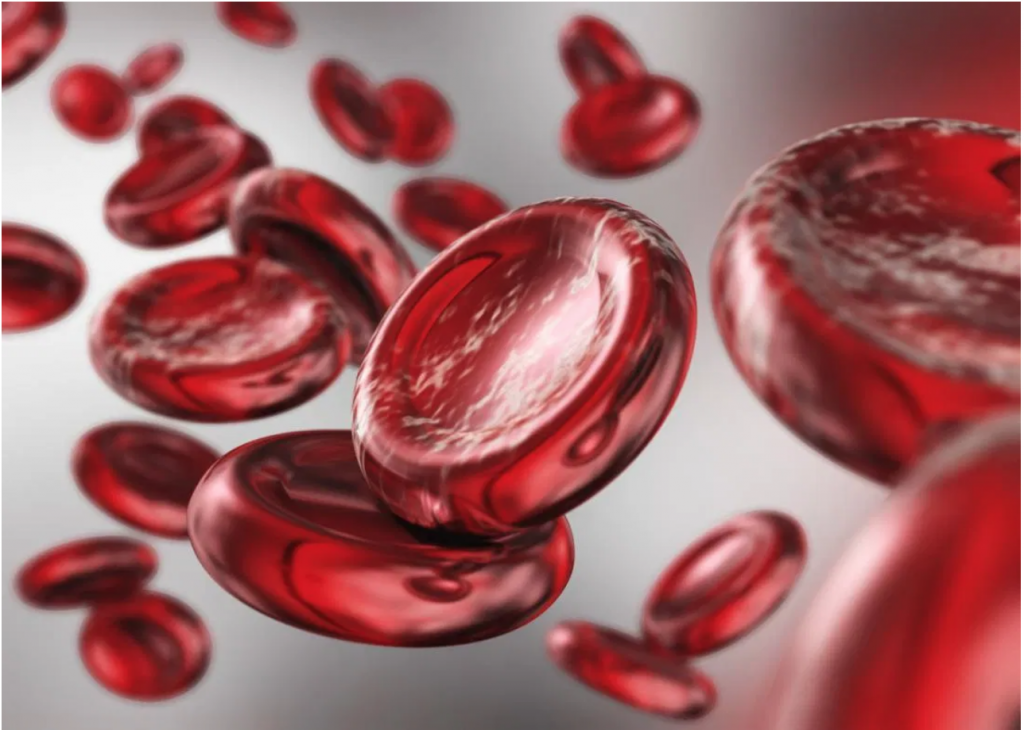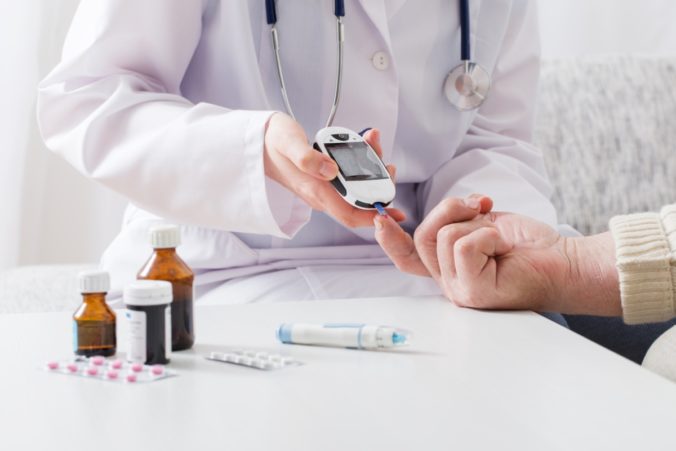
The normal blood sugar level varies significantly based on what you eat and when you eat. Thus, you need to keep a check with it. The American Diabetes Association suggests that the normal blood sugar level would further be differentiated based on whether the person has diabetes or not.[1]
Fasting Normal Blood Sugar Level
Now, there are two levels of testing here.
- Without diabetes- 70-99mg/dl
- With diabetes- 80-130mg/do
2 hours after a meal
Again, the results will differ depending on whether you have diabetes or not.
- Without diabetes- <140mg/dl
- With diabetes- <180mg/dl
During the day, the normal blood sugar level is pretty low before having your meal.[2] But at the same time, the normal would vary from person to person. While for some people 60mg/dL is common, for some it is 90mg/dL.
Blood Sugar Level and Diabetes
One of the most common questions by diabetic patients has been, “what is my normal blood sugar level?” Well, it is your health worker’s responsibility to make you aware of the normal levels of blood sugar level.[3]
The rise in your blood sugar level is directly dependent on what you eat. Foods rich in carbohydrates such as pasta, fruit, and bread are the main reasons for the increase in blood glucose levels. The main purpose of glucose in the blood is to provide energy.
Are high levels of blood sugar level dangerous?
Of course, it is.
High blood sugar levels can be pretty dangerous as it may give rise to diabetes.[4] Some of the common signs of high blood sugar level in the body include
- Excessive thirst or hunger
- Excessive urination
- Sudden weight loss
- Blurry vision
- Increase the risk of infections
Often people may also undergo extremity paresthesias as if something is itching them.
Increased blood sugar levels can cause several medical problems such as eye damage, cardiovascular attack, and stroke.[5]
Often people fail to maintain the high blood sugar levels in their bodies, and this eventually paves the way to serious problems such as diabetic ketoacidosis, loss of consciousness, and even death.[6]
Insulin and IV fluids are the probable treatments for keeping your blood sugar level at bay.
Is low blood sugar level dangerous?
As high blood sugar levels, the low blood sugar level is dangerous too.
Symptoms of low blood sugar level in the body include
- Dizziness
- Confused feeling
- Perspiration
If hypoglycemia or low blood sugar level isn’t taken into consideration properly, it may result in seizures and even death of the person.[7] People with blood sugar levels less than 70mg/dL are the most prone to hypoglycemia.
Oral glucose intake and IV fluids rich in glucose are some of the potential treatments for low blood sugar levels. Health officials recommend checking the blood sugar level every time after 15 minutes of medicine intake.
Can a person suffering from high blood pressure become hypoglycemic?
Yes.
Although this may sound weird, people suffering from high blood pressure are prone to becoming hypoglycemic but only under certain conditions. Such instances include
- Developing hepatitis
- Developing brain tumor
- Alcohol addiction
- Having some other medicine
- Pancreatic tumor
Know The Glucose Level
Health officials always recommend keeping a close track of your glucose level. While you may prefer keeping a track by making a manual calculator using pen and paper, having a smartphone app is the much-suggested way to keep track.[8] Downloading the glucose level tracker app can be of great help, and you may eventually know how much you have progressed with time.
But why do I need the app when I can know about it once a day? Well, this is something you might be thinking, but as mentioned above, the glucose levels keep changing with time. You need to keep a close check on your glucose level for better advantages.[9]
If you keep a continuous record or data of the glucose level, you will be able to spot the trends, and this will further be a mark of your progress. Your healthcare professional would further be able to alternate the treatment depending on the treatment. Every time you visit your healthcare professional, make sure that you carry the charts with you.

What if my levels aren’t okay?
If you notice that you haven’t been responding well to the medicines (through the app), you need to consult the medical healthcare professional about it. Your medical provider or educator would further bring changes to your plan.
You may not be able to reach the target immediately, but it is always good to stay closer to the target.[10] If you are closer to the target with each passing day, you will be able to keep a close check at your medicine level and will eventually recover soon too.
If you have a test kit at home, you may prefer conducting the test frequently to find the accurate numbers. This can be of great help in the long run.
If you are buying a kit, make sure that you recommend your health care provider about it and find the perfect one around you.
What to do to manage blood glucose levels?
You must take prominent steps to manage blood glucose levels. Avoiding foods rich in carbohydrates is one of the best ways to manage blood glucose levels. As a result, you should cut down on potatoes, foods rich in fat, candies, and cake with frosting.
If you want to control your blood glucose levels, you must keep a check on your diet. Diet modification has always been the key to keeping your health at bay.[11] Well, your doctor will be one of the best persons who can prefer the chart for you. So, make sure to consult them before bringing any changes.
[1] https://www.ncbi.nlm.nih.gov/pubmed/26369574
[2] Bergman M, Felig P. Self-monitoring of blood glucose levels in diabetes. Principals and practice. Arch Intern Med. 1984;144:2029–34. [PubMed]
[3] https://www.ncbi.nlm.nih.gov/pmc/articles/PMC6002080/
[4] Donohoe RT, and Benton D. Cognitive functioning is susceptible to the level of blood glucose. Psychopharmacology (Berl). 1999. August; 145(4):378–85. [PubMed]
[5] https://www.ncbi.nlm.nih.gov/books/NBK459332/
[6] McCrimmon RJ, Ryan CM, and Frier BM. Diabetes and cognitive dysfunction. Lancet 2012; 379: 2291–2299. doi: 10.1016/S0140-6736(12)60360-2 [PubMed] [Google Scholar]
[7] Scholey AB, Harper S, and Kennedy DO. Cognitive demand and blood glucose. Physiology and Behavior 2001; 73: 4585592 [PubMed] [Google Scholar]
[8] https://www.ncbi.nlm.nih.gov/books/NBK248/
[9] https://www.ncbi.nlm.nih.gov/pubmed/14626853
[10] Fitzgerald S. High but normal blood sugar levels may have a negative effect on memory. Neurology Today 2013b: 25–29. [Google Scholar]
[11] Guyton AC, and Hall JE. Insulin, glucagon and diabetes mellitus. 13th Edition, (2016) Elsevier Inc, Philadelphia, PA. [Google Scholar]

